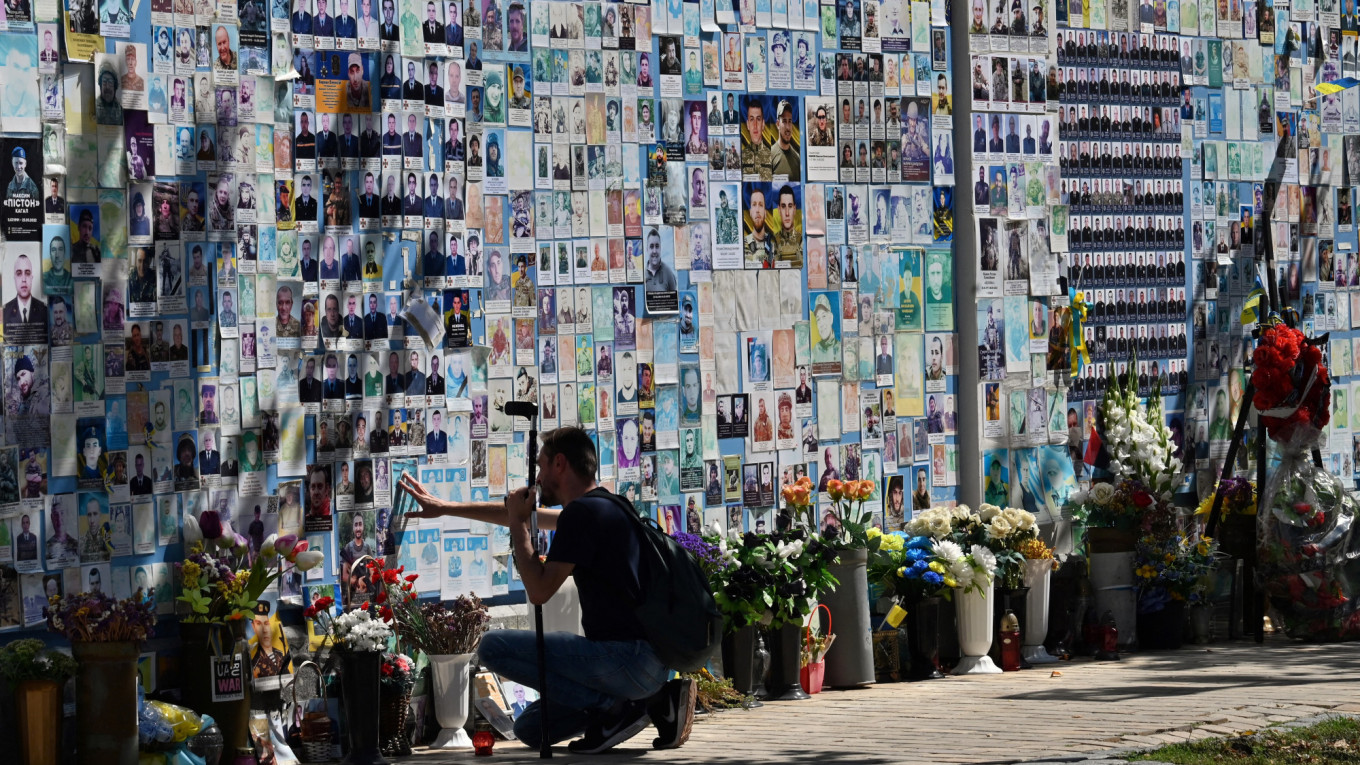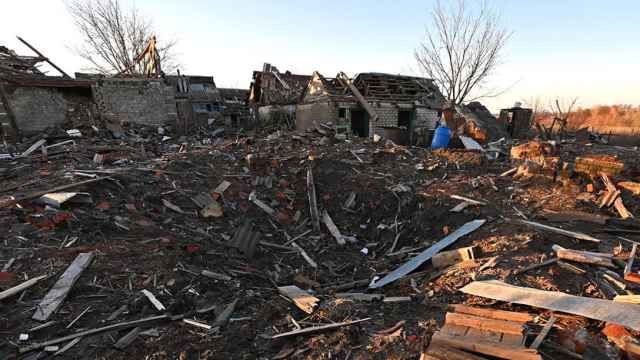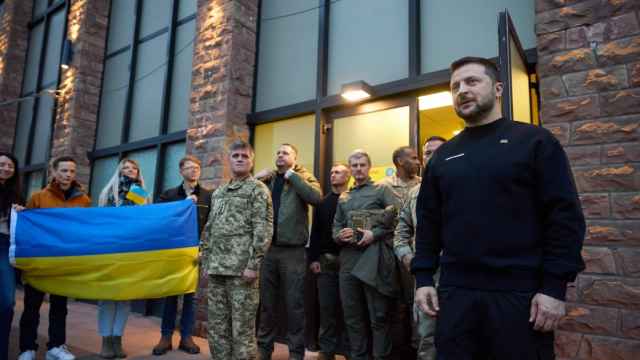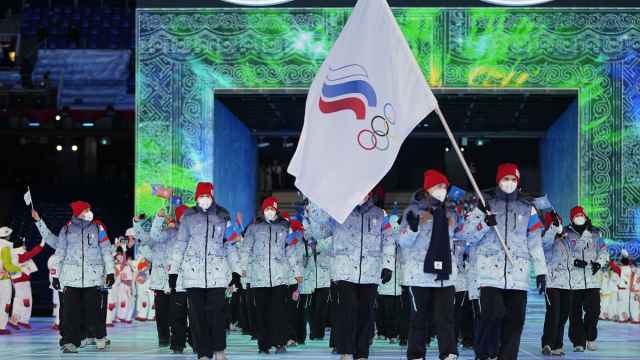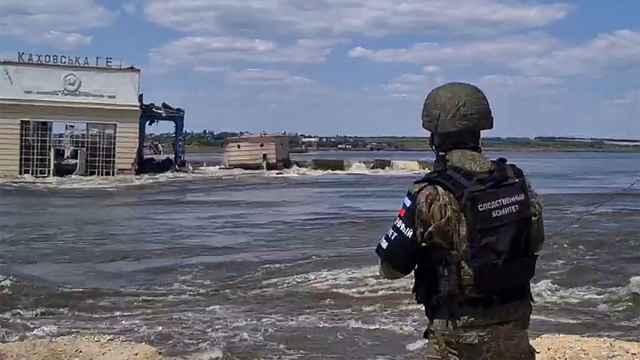Ten years of conflict and now two and a half years fighting off a full-scale invasion have taught Ukraine the value — and the steep cost — of independence in the harshest way possible. Concepts once debated in the safety of forums or the classroom have taken on an entirely new meaning when tested on the battlefield or at home under relentless shelling.
Although the experiences of individual Ukrainians vary, a collective experience has undeniably emerged, woven into the fabric of national discourse and the quiet conversations held around kitchen tables among friends and families. The prevailing themes of the nation’s journey have become clear.
Independence is not guaranteed, even in the 21st century. The rules-based international order, with its emphasis on the sanctity of national borders, can still fall prey to the ambitions of nations that view themselves as empires or global powers. Despite the array of international institutions designed to facilitate peaceful conflict resolution, these structures can prove too slow or ineffective in the face of such aggression.
Even in a conflict as clear-cut as this, building genuine international support requires enormous resources and precious time, measured in human lives. Despite two and a half years of relentless diplomatic efforts, the geopolitical watersheds are unmistakable, highlighting the rise of a multipolar world. However, even more worrisome are the fractures within Western support that reveal the fragility of proclaimed unity and values.
Another important lesson is that pacifism can be deadly. Appeasing aggressors rarely succeeds, especially with those who despise weakness and only speak the language of strength. Neglecting national defense spending in the pursuit of social welfare or under external pressure may lead to losing both well-being and the country itself to defend.
The idea that trade and economic ties could serve as a buffer against ideological and geopolitical conflicts has been proven insufficient. Russia's willingness to sacrifice economic gains for geopolitical ambitions has demonstrated that the doctrine of peace through trade is no longer viable in the face of aggressive authoritarianism. Moreover, carefree mercantilism or naïve globalization nurture rivals. What is the benefit of prioritizing profit if it will be consumed by the fires of war?
National spirit is a factor often overlooked when assessing the balance of power between nations. However, when it gains momentum — not just as a force for sovereignty but as a deeper commitment to the principles that define a just society — like in Ukraine, it becomes a formidable power. Faced with a choice between the familiar chains of oppression and the unyielding desire for freedom, dignity and respect within a social contract that values every individual, this spirit becomes exponentially stronger, far beyond what conventional calculations might predict.
Historical memory is important. After decades of distorted historical narratives, and efforts to erase the memory of the 20th-century Holodomor genocide orchestrated by Russia, Ukrainians have come to see themselves as fundamentally distinct from Russians, even as people on both sides of the border have extensive family ties. Even after the 2014 invasion, the West remained blind to the deep-rooted differences between the two nations, which were even underestimated within Ukraine. However, it is now clear that the real divide lies not in formal characteristics but in how each side perceives their national aspirations and the means to achieve them.
While Russia views genocide and crimes against humanity as acceptable tools for achieving fleeting global greatness by expanding its territory, Ukrainians exhibit an unyielding desire to live freely on our own land on our own terms. Ukrainians seek a just peace, whereas successive surveys have found that Russians, even those who acknowledge the war’s injustice, only accept peace on their own terms.
Ukrainians have fully realized their power as a civil society not only by self-organizing in the darkest times, but also by driving societal change through three revolutions, safeguarding free and fair elections and overseeing political reforms. Ukraine ranked second in the 2023 World Giving Index, an annual global charity survey by the British Charities Aid Foundation, with 78% of Ukrainian adults helping strangers, 70% contributing financially and 37% volunteering.
Yesterday’s “brotherly nation” is not Ukraine’s ally. Russian society appears helpless and conformist, while its opposition in exile remains fragmented and often struggles to embrace the collective political responsibility that is crucial for genuine change. Many Russian opposition figures are reluctant to openly support the Ukrainian armed forces, which might have a more significant contribution to Russia’s liberation than their current appeals from afar. Denying the harsh realities of their homeland, to the extent of advocating for reducing sanctions, which would be detrimental to the prospects for meaningful change in Russia.
Ukrainians have realized how difficult it would be to debunk the myths with which Russia has poisoned the West’s perception of them, and to challenge the patronizing way the West explains and excuses Russia to Ukrainians and other nations that have suffered under Moscow’s thumb. Such a task involves dissecting the mixture of two contradictory beliefs: that Russia is weak on the one hand, but allegedly strong and great on the other. Whatever the West’s fear — whether it is Russia’s collapse or an escalation of aggression — it must be overcome.
Many Ukrainians have felt the true meaning of there being no place like home, even in the face of constant danger and near-humanitarian catastrophe. Despite chronic anxiety, stress and fatigue, the country is energized by hope for its future. Though existential concerns about the future and mourning the loss of their former lives persist, the war has highlighted what truly matters: humanity and kindness.
Most importantly, independence is not a given and often comes at an extraordinarily high cost. There is no final victory for the rules-based order or humanity; there is a constant struggle where if one nation falls, the rest are weakened. Celebrating Ukraine’s independence for the 10th time since Russia invaded provides not only a beacon of hope for Ukrainians, but also for other nations still yearning for freedom.
A Message from The Moscow Times:
Dear readers,
We are facing unprecedented challenges. Russia's Prosecutor General's Office has designated The Moscow Times as an "undesirable" organization, criminalizing our work and putting our staff at risk of prosecution. This follows our earlier unjust labeling as a "foreign agent."
These actions are direct attempts to silence independent journalism in Russia. The authorities claim our work "discredits the decisions of the Russian leadership." We see things differently: we strive to provide accurate, unbiased reporting on Russia.
We, the journalists of The Moscow Times, refuse to be silenced. But to continue our work, we need your help.
Your support, no matter how small, makes a world of difference. If you can, please support us monthly starting from just $2. It's quick to set up, and every contribution makes a significant impact.
By supporting The Moscow Times, you're defending open, independent journalism in the face of repression. Thank you for standing with us.
Remind me later.



